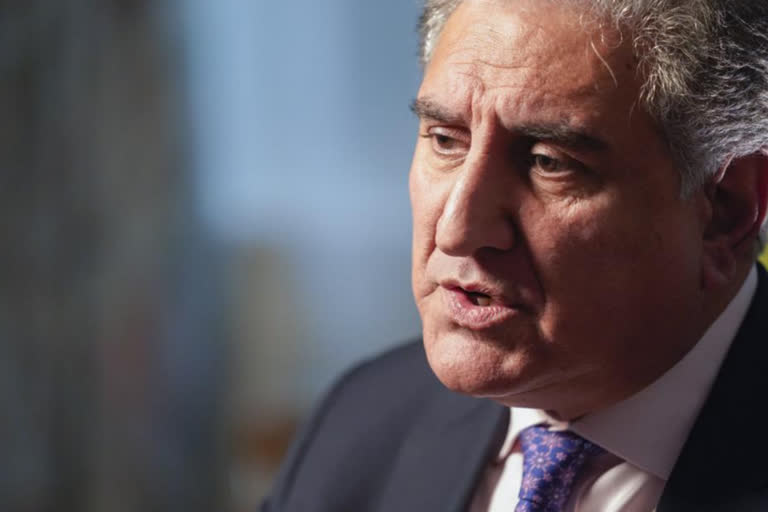United Nation: Be realistic. Show patience. Engage. And above all, don't isolate. Those are the pillars of an approach emerging in Pakistan to deal with the fledgling government that is suddenly running the country next door once again — Afghanistan's resurgent, often-volatile Taliban. Pakistan's government is proposing that the international community develop a road map that leads to diplomatic recognition of the Taliban — with incentives if they fulfill its requirements — and then sit down face to face and talk it out with the militia's leaders.
Pakistani Foreign Minister Shah Mehmood Qureshi outlined the idea Wednesday in an interview with The Associated Press on the sidelines of the U.N. General Assembly's meeting of world leaders. “If they live up to those expectations, they would make it easier for themselves, they will get acceptability, which is required for recognition,” Qureshi told the AP. “At the same time, the international community has to realize: What’s the alternative? What are the options? This is the reality, and can they turn away from this reality?”
He said Pakistan “is in sync with the international community” in wanting to see a peaceful, stable Afghanistan with no space for terrorist elements to increase their foothold, and for the Taliban to ensure “that Afghan soil is never used again against any country.” “But we are saying, be more realistic in your approach,” Qureshi said. “Try an innovative way of engaging with them. The way that they were being dealt with has not worked.”
Expectations from the Taliban leadership could include an inclusive government and assurances for human rights, especially for women and girls, Qureshi said. In turn, he said, the Afghan government might be motivated by receiving development, economic and reconstruction aid to help recover from decades of war.
He urged the United States, the International Monetary Fund and other countries that have frozen Afghan government funds to immediately release the money so it can be used “for promoting normalcy in Afghanistan.” And he pledged that Pakistan is ready to play a “constructive, positive” role in opening communications channels with the Taliban because it, too, benefits from peace and stability.
This is the second time that the Taliban, who adhere to a strict version of Islam, have ruled Afghanistan. The first time, from 1996 to 2001, ended when they were ousted by a U.S.-led coalition after the 9/11 attacks, which were directed by Osama bin Laden from Afghanistan. During that rule, Taliban leaders and police barred girls from school and prohibited women from working outside the home or leaving it without a male escort. After they were overthrown, Afghan women still faced challenges in the male-dominated society but increasingly stepped into powerful positions in government and numerous fields.
But when the U.S. withdrew its military from Afghanistan last month, the government collapsed and a new generation of the Taliban resurged, taking over almost immediately. In the weeks since, many countries have expressed disappointment that the Taliban’s interim government is not inclusive as its spokesman had promised. While the new government has allowed young girls to attend school, it has not yet allowed older girls to return to secondary school, and most women to return to work despite a promise in April that women “can serve their society in the education, business, health and social fields while maintaining correct Islamic hijab.”
Pakistan, which shares a long border with Afghanistan, has a long and sometimes conflicted relationship with its neighbor that includes attempts to prevent terrorism there and, some say, also encouraging it. The Islamabad government has a fundamental vested interest in ensuring that whatever the new Afghanistan offers, it is not a threat to Pakistan. That, Qureshi says, requires a steady and calibrated approach.
